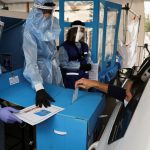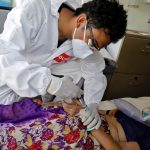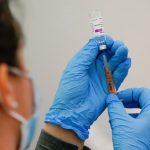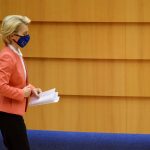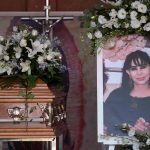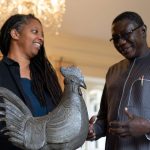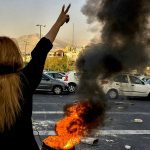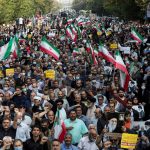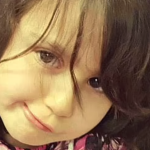Benjamin Netanyahu has accused human rights groups of turning a blind eye to rapes that Israel says were committed by Hamas during the 7 October massacre.
Speaking at a news conference on Tuesday, the Israeli prime minister accused the international community of playing down the attacks and even ignoring them.
He said he expects “all civilised leaders, governments, nations to speak up against this atrocity”.
“I say to the women’s rights organisations, to the human rights organisations, you’ve heard of the rape of Israeli women, horrible atrocities, sexual mutilation – where the hell are you?” Netanyahu told a news conference on Tuesday, speaking in English to emphasise his point.
US President Joe Biden called the reports of sexual violence “appalling” and urged the world to condemn “horrific accounts of unimaginable cruelty”.
Speaking at a campaign fundraiser in Boston, he called on the world to condemn the acts by Hamas “without equivocation” and “without exception”.
He also stressed that “Hamas’s refusal to release the remaining young women” is what ended a temporary truce and hostage agreement that the US helped broker.
Israeli girl, 5, returns to kindergarten after 49 days in Hamas captivity
Israel expands ground offensive to entire Gaza Strip – ‘dividing it into three’
Hamas claims youngest Israeli hostage Kfir Bibas has died alongside his mother and brother
Israel’s justice ministry says “victims were tortured, physically abused, raped, burned alive, and dismembered” however Hamas has rejected all allegations that its gunmen committed sexual assault.
‘Widespread’ sexual violence
A human rights group has reported that rape and sexual violence were “widespread” during Hamas’ 7 October attack on Israel.
A group named Physicians for Human Rights in Israel, which has a long record of advocating for Palestinian civilians in Gaza, published an initial assessment in November.
“What we know for sure is that it was more than just one case and it was widespread, in that this happened in more than one location and more than a handful of times,” Hadas Ziv, policy and ethics director for the organisation, said on Tuesday.
“It is becoming more apparent that the violence perpetrated against women, men and children also included widespread sexual and gender-based crimes.
“What we don’t know and what the police are investigating is whether it was ordered to be done and whether it was systematic.”
While investigators are still trying to determine the scope of the sexual assaults, many witnesses of the atrocities have spoken out, with some giving harrowing details of terrorists raping, mutilating and murdering women.
A man hiding in a pit during the assault on a music festival said he heard someone nearby screaming she was being raped.
Israel-Gaza latest: US steps up pressure on Israel with visa ban
An army reservist who was tasked with identifying those killed said some of the women were found wearing only bloodied underwear.
Others said they found women semi-naked, bound, eviscerated, stripped, bruised, shot in the head or torched.
Hamas and other Gaza militant groups killed about 1,200 people, most of them civilians, and took more than 240 hostages that day.
Read more:
Decomposing babies ‘seen in footage’ from abandoned hospital
British teenager killed in Gaza while fighting for IDF
The truce has ended – what will Israel do now?
Two months after the attack on farming communities and army posts in southern Israel, police are still trying to put together the pieces.
In the immediate aftermath, priority was given to identifying bodies, not to preserving evidence.
Police say they’re combing through 60,000 videos seized from the body cameras of Hamas attackers, from social media and from security cameras as well as 1,000 testimonies to bring the perpetrators to justice.
It has been difficult finding rape survivors, with many victims killed by their attackers.
Please use Chrome browser for a more accessible video player
Last month, Israel’s police chief presented to the international news media videotaped testimony of a rape witness at the music festival.
Her face blurred, she said she watched militants gang-rape a woman as she lay on the ground.
The woman in the video described watching the militants as she pretended to be dead.
“I couldn’t understand what I saw,” she said.
‘Absolutely concerned’ about sexual violence against hostages
At the Shura military base where victims are being identified, Shari Mendes, a member of the army reserve unit that deals with the identification and religious burial preparation of female soldiers, said some of the women’s bodies came in with little clothing.
“Often women came in in just their underwear,” she said.
“Sometimes we had people who – we just had a torso, okay – or they were very decomposed or they were mutilated.
“I saw very bloody genitals on women.”
Based on open-source information and interviews, the Physicians for Human Rights in Israel report documents incidents at the music festival, homes around the Gaza Strip and an Israeli military base, all attacked by Hamas.
Please use Chrome browser for a more accessible video player
On Tuesday, Mr Netanyahu and members of his war cabinet held a meeting with recently released hostages and family members of hostages still held in Gaza.
Some of those former hostages shared testimonies of sexual abuse during their time in Gaza, participants said.
Separately, a doctor who treated some of the 110 released hostages said that at least 10 men and women among those freed were sexually assaulted or abused, but did not provide further details.
According to the Israeli military, 138 hostages, including 15 women, are still held by Hamas and other militant groups in Gaza.
Lt. Col. Richard Hecht, a military spokesman, said the army is “absolutely” concerned about sexual violence against female hostages.
Echoing these concerns earlier this week, US State Department spokesman Matthew Miller said: “It seems that one of the reasons they (Hamas) don’t want to turn women over that they’ve been holding hostage – and the reason this pause fell apart – is that they don’t want these women to be able to talk about what happened to them during their time in custody.”



